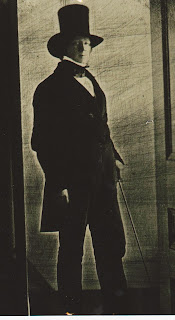John spoke in many churches in France and debated with
ministers as he’d done in England. Some people joined to the Church, but most
of the French citizens were too worried about political unrest to think of
religion. Napoleon’s nephew, Louis Napoleon, was elected president. He then took
over the army, suppressed the newspapers, and had the senate make him the
Emperor – a revolution was in the making.
John worked hard for two years in
France and Germany. When he knew the time for his mission was drawing to a
close, he wanted to meet with the Saints in Paris to say farewell. He loved
them and wanted to bear his testimony of the truthfulness of the gospel to them
one last time.
The authorities had forbidden John
to preach in Paris, but that didn’t stop him. He called for a conference of the
members. Brother Bolton told him it was too dangerous.
John decided to hold the meeting on
the day Louis Napoleon was to become president. The soldiers in Paris were busy
with the election so no one noticed the Mormons. About four hundred Saints
attended the conference. John organized a presidency for the area so that the
work could go on without him. He planned to leave for England the following day.
By the next
morning, the authorities had heard about the conference and came to arrest
John. His train was to leave in the afternoon, but the Spirit told him to get
away as soon as he could. He said good-bye to his landlord and slipped out the
back door to catch a cab. Just a few minutes later, the police knocked at the
door looking for John. He learned later in a letter that his landlord had invited
the officers in and the landlord’s sister-in-law served tea. The landlord and
his sister charmed the officers, but soon the police realized what had
happened. By then John was on his way to England and safety.5

